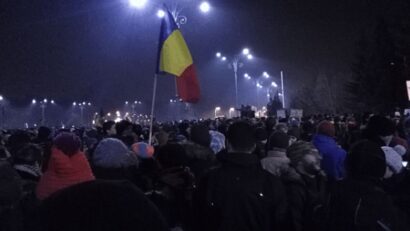Effects of the Middle East crisis
The new crisis in the Middle East has echoes in Romania, as well.

Bogdan Matei, 17.06.2025, 13:50
The Romanian airliner TAROM announced the extension of its temporary suspension of commercial flights to and from Tel Aviv, Israel, Beirut, in Lebanon and Jordan amid the new crisis in the Middle East. Flights are not expected to resume before the end of the week. In the meantime, 400 Romanian citizens have requested to be evacuated from Israel and Iran. The state secretary for European affairs, the Middle East and Africa with the Romanian foreign ministry, Clara Staicu, explained that repatriations can only be made by road, either through Egypt or Azerbaijan, given that air space is closed both in Israel and in Iran. She said the decision to use military aircraft for possible evacuations will be taken by the government.
The ministry is in constant contact with its diplomatic missions in the countries concerned, as well as with the local authorities in these countries in order to identify safe evacuation options. It is also coordinating with the missions of other partner and allied states with citizens in similar situations.
In Bucharest, experts are warning that the intensification of the military conflict between the Jewish state and the Islamic republic may have significant negative consequences at global level.
Economic analyst and member of CFA Romania Council Dragoş Cabat explains:
“As always when something happens in the Middle East, the first thing we think about is the price of oil and gas. So an increase in oil and gas prices is to be expected, all the more so as the conflict will escalate or can escalate further. This means not only short-term fluctuation in the prices of oil and gas, but a long term increase. Also, given that Iran is bordered by the Strait of Hormuz, a commercially very important waterway through which pass not only the oil and gas, but also other raw materials from Asia to Europe and the United States, potentially blocking the strait would also lead to an increase in the cost of raw materials and all products passing through it, products from East Asia, including China, India, etc. So, this unfortunate situation will increase the price of all raw materials during this period.”
Politically and geostrategically, instability can influence capital and stock exchange markets, economic analyst Dragoş Cabat says. He recalls that although the conflict in the Middle East has been latent for dozens of years, since the creation of the state of Israel, and will probably last a long time, out in the open, confrontations usually last between a week and a month.






























